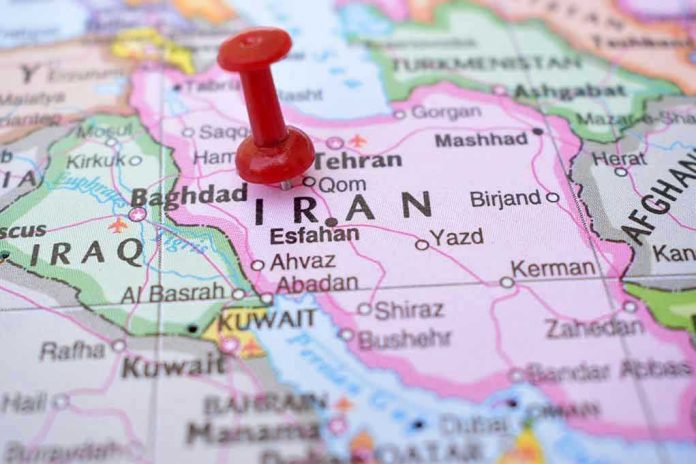
Iran’s demand that the US guarantee no further military attacks before resuming nuclear talks throws the entire region into a fresh standoff—just after strikes that left Iranian nuclear facilities in ruins and the so-called “international community” wringing its hands in confusion.
At a Glance
- Iran refuses to resume nuclear negotiations unless the US guarantees an end to military attacks.
- Recent US and Israeli airstrikes devastated Iran’s nuclear infrastructure, prompting Iran to suspend cooperation with the UN’s nuclear watchdog.
- Diplomatic efforts have stalled, with both sides entrenched over uranium enrichment and security guarantees.
- The risk of nuclear proliferation and regional instability has sharply increased, while global energy markets brace for more turbulence.
Iran’s Ultimatum: No Talks Without Security Guarantees
Iran’s foreign minister, Abbas Araghchi, announced that Tehran would not even consider resuming nuclear negotiations with the United States unless Washington commits to no further military action against Iranian nuclear sites. This is the latest twist in a saga that’s stretched on for over two decades, with one side enriching uranium and the other side—well, pretending to act surprised every time Iran pushes closer to weapons-grade material. After the US and Israel pounded Iran’s nuclear facilities in a matter of days, Araghchi claims the only path back to the negotiating table is with ironclad security guarantees. That’s right: Iran, who’s been playing hide-and-seek with nuclear inspectors for years, is now demanding trust.
The Iranian government has suspended all cooperation with the International Atomic Energy Agency (IAEA), warning that future access will be determined “case by case” and only if it suits Tehran’s own security interests. According to President Masoud Pezeshkian, the destruction at nuclear facilities is so extensive that Iranian authorities haven’t even been able to assess the damage. So much for transparency and global accountability. And yet, somehow, the talking heads in Brussels and New York still call for more dialogue—with what’s left of the nuclear program, one wonders?
US and Israel: Striking First, Talking Later
President Donald Trump’s administration, fresh off ending the disastrous Biden era, has made it clear: Iran must halt uranium enrichment on its own soil—no exceptions, no loopholes. Israel, never one to wait for permission slips from the UN, justified the 12-day bombardment of Iranian nuclear and military sites as a necessity to prevent Iran from building a bomb. The US joined in, unleashing airstrikes that targeted key facilities across Iran on June 22, 2025. The message? Sweet talk and toothless “agreements” don’t stop centrifuges spinning. Only real consequences do.
Both the US and Israeli governments maintain that their military actions were essential for regional and global security, especially as Iran edges closer to nuclear weapons capability. Iranian authorities, predictably, have labeled the strikes as unprovoked aggression—a favorite refrain from a regime that’s spent years threatening neighbors and flouting international agreements. The result? A diplomatic stalemate, with Iran digging in on uranium enrichment and demanding guarantees that would be laughable if the stakes weren’t so high.
Global Fallout: Transparency Lost, Tensions Rise
The fallout from the strikes and the collapse of talks has been swift and severe. By suspending cooperation with the IAEA, Iran has effectively turned out the lights on what little oversight remained. Experts warn that the risk of unchecked nuclear proliferation has skyrocketed, since inspectors can’t verify what Iran is actually doing behind closed doors. Meanwhile, Iranian hardliners, emboldened by the attacks and the regime’s familiar sense of victimhood, are gaining ground—making real compromise even less likely.
Across the Middle East, states are bracing for further escalation. Regional instability is now a certainty, with Iran’s proxies and rivals alike preparing for new rounds of conflict. Global energy markets, already jittery from years of political gamesmanship, are facing fresh shocks as the threat of further conflict looms over the world’s most important shipping lanes. And for ordinary Iranians—already battered by sanctions, inflation, and government mismanagement—the prospect of more economic pain is all but guaranteed.







